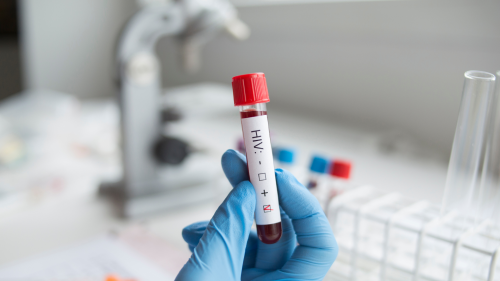As international travel increases, the incidence of hepatitis among travelers remains high and likely leads to regional outbreaks. Travelers should learn about the incidence of hepatitis associated with their destination before going abroad to know about protection for themself from hepatitis.
Hepatitis is a disease with a high number of cases in developing countries. Inflammatory disease of the liver is generally caused by a virus so it can be transmitted to others. Several types of hepatitis have been identified. The main types are hepatitis A, B, and C.
Hepatitis A spreads by fecal-oral contact. This can occur by consuming food or beverages contaminated with even tiny amounts of virus-laden feces, or through close personal contact with someone who has hepatitis A. Most people with hepatitis A recover fully within a matter of weeks or months.
Hepatitis B and C spread through contact with infected blood (in the case of B, other body fluids). This can occur via sexual contact with someone who has hepatitis B or C, by sharing personal items (nail trimmers, razors, drug paraphernalia, etc.) of an infected person, or from dirty hypodermic needles or transfusions of blood that was not screened for hepatitis. Hepatitis B and C can lead to cirrhosis of the liver, liver cancer, and death.
What can you do to minimize your risk of contracting hepatitis while traveling abroad? Here are eight strategies:
- Get vaccinated
Safe and effective vaccines are available for hepatitis A and B, though not yet for hepatitis C.
The hepatitis A vaccine is typically given in two doses six months apart. The hepatitis B vaccine is typically given to adults in three doses spread over six months, and to children in three or four doses spread over six to 18 months. Adults are also eligible to get a combined vaccine given in three doses over six months.
For older adults (age >40 years), people who are immunocompromised, and people with chronic liver disease or other chronic medical conditions the health-care provider may consider, based on several factors, giving an injection of immune globulin at the same time in different limbs.
People who are allergic to a vaccine component or are younger than 6 months should receive a single dose of immune globulin before traveling to a country where hepatitis is common. Immune globulin provides effective protection against hepatitis virus infection for up to 2 months, depending on the dosage given.
If you do not have time for all the injections before embarking on a trip, get the first injection. That way, you will have at least partial immunity. Another possibility is to ask the doctor about getting all the injections on an accelerated schedule.
- Know your destination
The risk of contracting hepatitis is small if traveling to Canada, Japan, Western Europe, or another area where the disease is not prevalent and where sanitation is good.
But travel to a developing country where hepatitis is prevalent calls for extra vigilance. Viral hepatitis is especially common in Sub-Saharan Africa, Eastern Europe, the Middle East, the Amazon basin, and Asia.
- Keep hands clean
Practice good personal hygiene such as thorough hand-washing with soap and water. Frequent hand washing helps keep fecal matter from spreading from hands to mouth, where it can cause infection. Washing hands with warm, soapy water -- or use a hand sanitizer -- after using the bathroom or changing a diaper and before eating. Consider using a napkin or paper towel to turn off the tap and to open the door, if you must use a dirty bathroom.
- Watch what you eat
Uncooked food, including fruits, vegetables, salads, and raw meat or shellfish, can transmit hepatitis. Where sanitation is iffy, stick with cooked foods -- eaten while they are still hot. Eat fresh fruits and vegetables only if you peel them yourself.
- Avoid contaminated water
In regions with poor sanitation, tap water can transmit hepatitis. To cut the risk, use bottled water for drinking as well as for washing fruits and vegetables. Steer clear of ice cubes unless you are sure they were made from pure water.
- Take precautions regarding sex
Three of the main types of hepatitis can be spread by sexual contact, it is a good idea to learn something about a potential sex partner -- especially if he/she is from a region where hepatitis is endemic.
There is no easy way to tell whether a particular person has hepatitis. Many people look healthy even in the disease’s latter stages. But the risk may be higher with a partner who has tattoos, has used illegal drugs, or has a history of sexual promiscuity.
Using a latex condom can reduce your risk. Also avoid oral-anal contact and rough sex, anal sex, and other activities likely to cause cuts or abrasions, which increase the risk of transmission.
- Beware of sharps
Dirty or reused hypodermic needles can spread hepatitis, as can acupuncture needles and instruments used to make tattoos or piercings. If there is any doubt that a needle is sanitary - such as in an area where adequate sterilization techniques are unavailable, avoid it.
- Steer clear of blood
It is prudent to assume that blood from another person is infectious. Any blood exposure can transmit hepatitis B and C. So, as much as possible, avoid getting splashed with blood from other people. If need to render first aid to someone who is bleeding, do the best to avoid contact with his/her blood. If blood does get on, wash it off at once.
It is very important to take these preventive measures if you travel abroad, especially to regions where hepatitis is prevalent and sanitation is poor. The slightest prevention effort can certainly stop the spread of hepatitis and avoid new disease outbreaks.
References:
- CDC. (2020). Hepatitis A Questions and Answers for the Public
- Cleveland Clinic. (2020). Viral Hepatitis: Prevention
- WebMD. Viral Hepatitis: 8 Self-Defense Tips for Travelers






